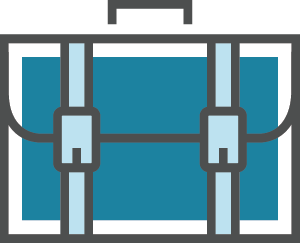Undergraduate and graduate-level students refine Apache Junction’s land development planning
Students inventory and analyze data, and engage community with city to better define development projects for future implementation.
Metrics
Community
Apache Junction, AZ, USACommunity Size
41,739 (2018 Census Estimation)University
Arizona State UniversityProgram
Project CitiesYears
2017-2018Status
CompletedCase Type
Project StoriesSchool Size
Greater than 40,000Focus Areas
Economic and Social InclusionDiscipline
Art, DesignRegion
EPA Region 9, USAA relatively young city with an abundance of natural assets, affordable housing, and located between Greater Phoenix and the rugged Tonto National Forest, Apache Junction is a crucible for prosperity. City officials eagerly wanted to catalyze each element into a profitable city worthy of the acclaim given to cities such as Flagstaff, Scottsdale, and Sedona.
A member of the EPIC-Network, Arizona State University’s (ASU) Project Cities “connects higher education with local communities” (from ASU Project Cities site) to co-create sustainable solutions which progress cities toward a better future. ASU courses and students were invited by Apache Junction to participate and engage with the research and development of community projects concerned with creating suitable and sustainable urban land use.
The goal of ASU’s involvement was to “create overarching visions for Apache Junction” regarding all Project Cities projects and to “generate landscape architecture ideas” (from ASU PC Fall 2017 Guide) that would inspire and implement future city development.
ASU students from a mixed graduate-, undergraduate-level Landscape Architecture course conducted various forms of research to aid and improve Apache Junction’s current projects, which included:
- Inventorying and analyzing data from the U.S. Department of Agriculture (USDA), the Federal Emergency Management Agency (FEMA), and more to understand the human and natural factors on local land use.
- Interacting onsite with the urban and natural land to study “the truth of the place from the ground”.
- Attending and participating in community events where, using the Socratic questioning method, they would ask open-ended questions to induce enlightening conversations which would lead to insightful responses.
ASU students observed numerous characteristics within Apache Junction that could be utilized toward development that reflected the values of its citizens while remaining mindful of sustainability best practices. In particular, students were most interested in creating projects that wouldn’t “bifurcate the city into the “old” and “new” Apache Junction” (PC Fall 2017 Guide).
Recommendations for land-development projects focused on the theme of “sustainability, active and healthy living, and a strong community identity,” (PC Guide) which could be fostered by bringing attention to the city’s natural assets while marrying urban and natural land, creating communal spaces which celebrate Western culture and history with modernity, and reinvigorating the city as a health and recreation district by encouraging foot and bike traffic thanks to improved transportation pathways.
ASU’s courses and students helped Apache Junction calibrate their view on future developments that could generate communal growth within the city, from leveraging its natural assets to induce a reformation of health and recreation to designing city spaces that incorporate the city’s Western roots while imparting a sense of place. Through these and other ASU recommendations, Apache Junction can effectively provide residents and visitors with notable benefits to bestow the positive perceptions and acclaim onto the city that they have sought to foster.
CONTACT INFO
Project Cities
Steven Russell
Program Manager
steven.russell@asu.edu
480-727-2698
Arizona State University Faculty
Ken Brooks
Kevin Kellogg
Course Title: Landscape Architecture Design Studio, 361
Apache Junction
Larry Kirch
Director
Development Services
City of Apache Junction
lkirch@ajcity.net
480-474-5082







